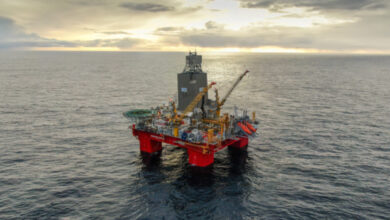Environmental concerns, infrastructure and economic viability challenge global unconventional markets

By Joanne Liou, associate editor
A world map of the total unconventional reserves that have been found illustrates a broader potential beyond the US, although that market has been the first to take off. In the US, unconventional development has generated more than $1 trillion in GDP and more than 10 million jobs, Karl Blanchard, Vice President – Production Enhancement for Halliburton, said. However, the opportunity and potential is much greater if you consider the rest of the world, as the amount of reserves available worldwide is more than 10 times the amount in the US, he continued. Mr Blanchard, who participated yesterday in the plenary session on unconventional resources at the 2014 IADC/SPE Drilling Conference in Fort Worth, Texas, addressed three challenges: environmental concerns, infrastructure and economic viability.
Australia is a prime example of a country that has significant technically recoverable unconventional resources but that is facing major challenges. Environmental concerns have led to a ban on hydraulic fracturing in some states. “Effectively managing this (concern) at the federal, state and community level is critical for our industry to retain our license to operate in Australia,” Mr Blanchard said. Further, the industry must work harder to engage citizens in the communities in which they work.
Mr Blanchard recognized that the industry’s community efforts have been more effective in recent years, as cross-industry collaborative efforts have helped to create a “sound, sensible, business-friendly environment that also holds us accountable.”
Executing operations flawlessly and in an environmentally sensible manner is also critical to maintain public trust. Innovations, such as clean fluid technology, have improved the industry’s environmental footprint, as well as overall operations. “The opportunity to reuse produced water is critical, especially when we move outside the US, where the infrastructure is limited and the cost is very high,” Mr Blanchard explained. “The produced water opportunity will deliver both substantial cost reduction and make this economic but also improve our environmental footprint.”
Although the size of Australia is only 80% the size of the US in terms of land, that country has only 12% of the American road network in terms of miles, Mr Blanchard stated. Such numbers illustrate the lack of infrastructure. On top of that, there is a lack of human resources. In the Bakken, there are approximately 300,000 people serving the oil and gas boom there, with nearly 250,000 of them having either temporarily moved to the region or who commute. “We draw that quarter-million of people out of a population of 325 million in the US,” he said. “By contrast, Australia has 23 million total citizens in their population.”
Finally, the cost to operate is comparatively high. In Australia’s Cooper Basin, which is considered a mature oil and gas area, “unconventional wells are in the range of $12 million today, when the economics need to be $8 million or less,” Mr Blanchard said, adding that some wells in the basin cost as much as $20 million. “Clearly, cost per well has to come down for this to be economically viable.”
As the industry moves outside North America to explore additional unconventional resources, the economics will make advanced technology and techniques more valuable. Improving subsurface efficiency and understanding, as well as integrating technologies, will help the industry overcome those challenges. “That will make us successful as an industry as we move forward,” Mr Blanchard said.




